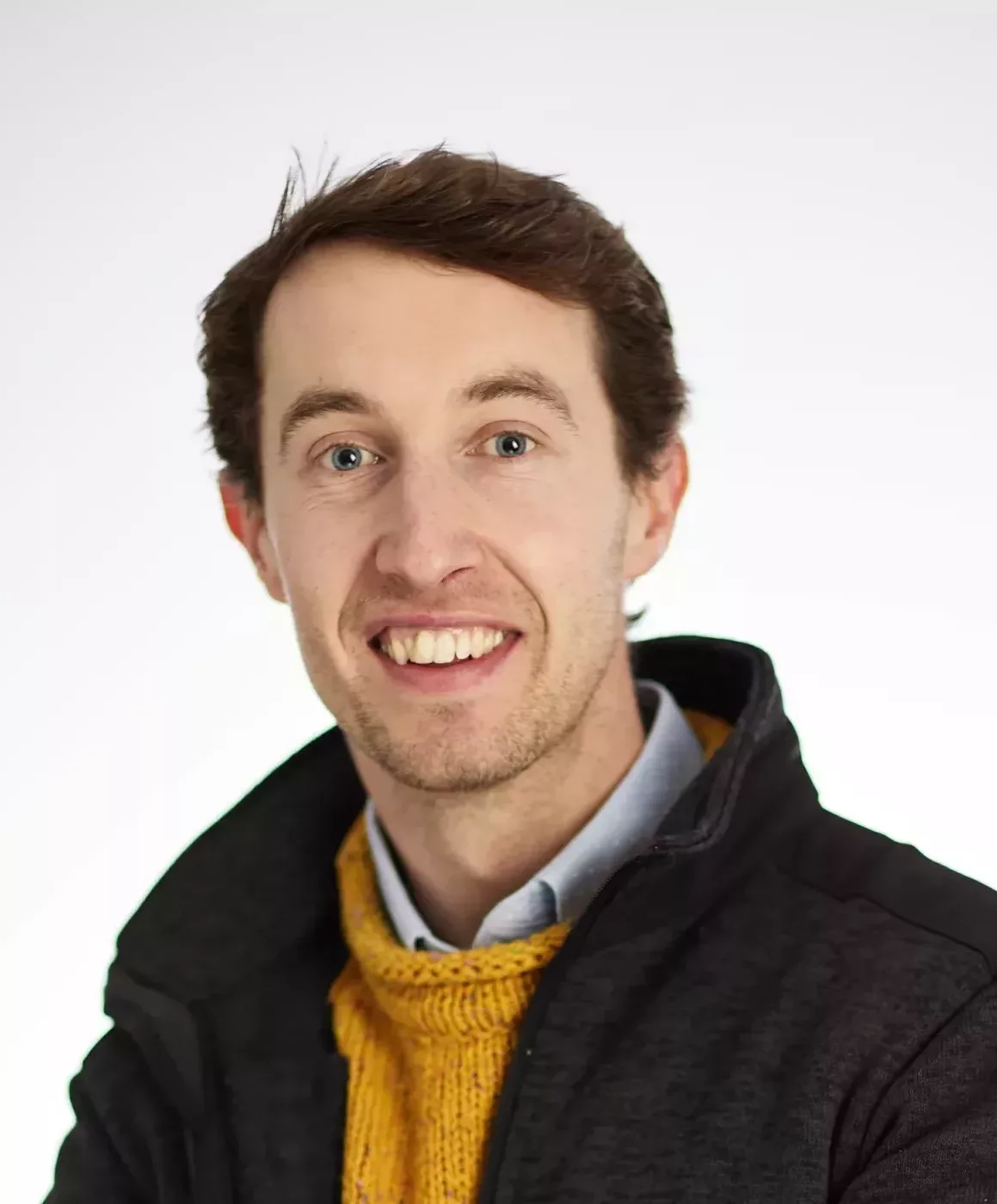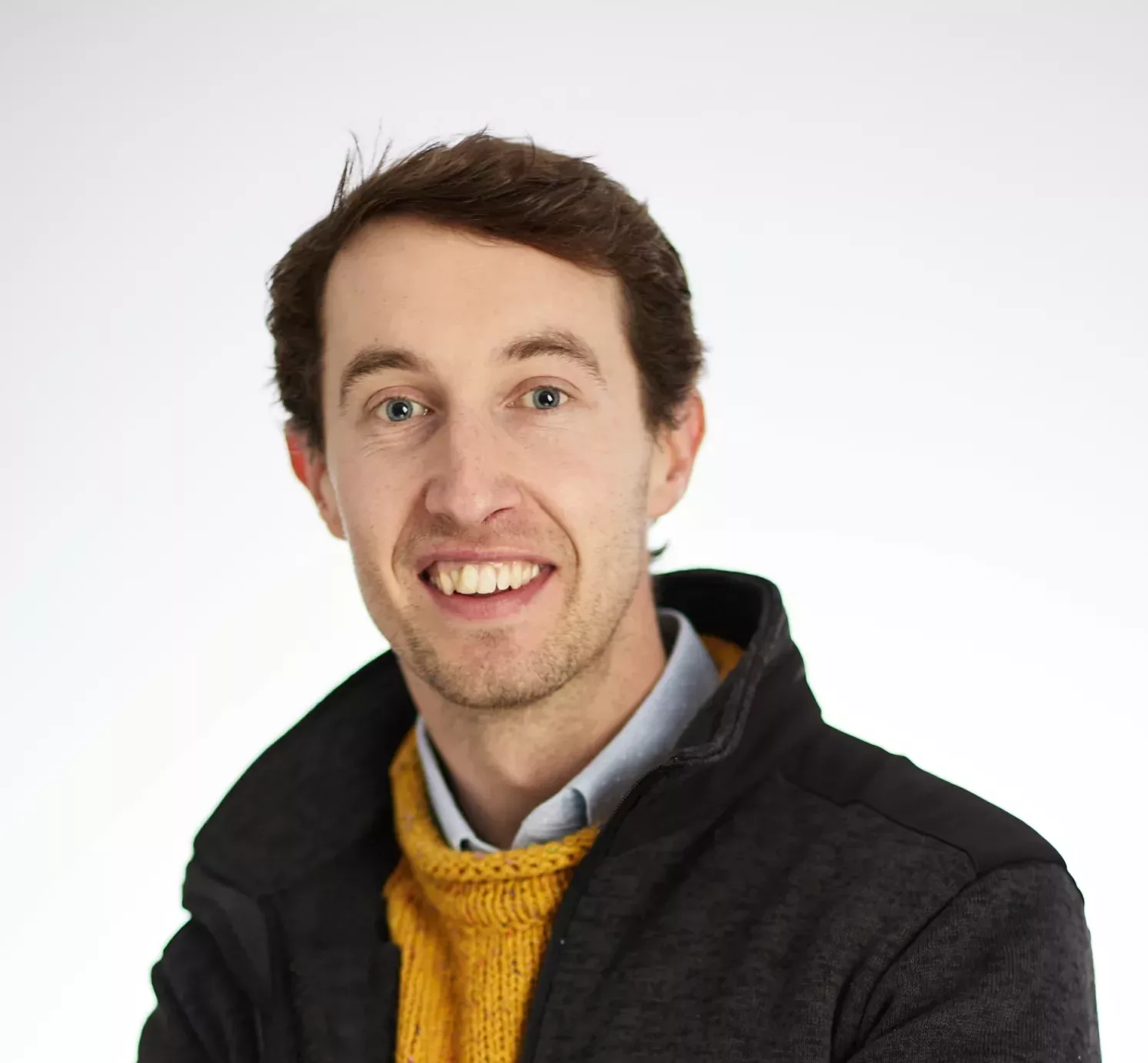
Cois Coiribe: What kind of impact has your experience at University of Galway had on your career path?
Jack O’Meara: My Biomedical Engineering undergad fundamentally gave me a great grounding in the type of research that I’m now involved in. Something under-appreciated about Galway is that it’s a very gregarious, collaborative and energetic environment for students. I honed the interpersonal skills necessary for entrepreneurship at University at Galway. Galway is an artsy, fun-loving place and I was involved in societies and lots of extra-curricular activities. That fun opportunism taught me a lot about how to go about starting a business. I also learned a lot about people in Galway.
As part of my undergrad, I spent a year in Purdue University in Indiana. The US tends to be a lot more competitive and operates on a larger scale. So, that foundation of collaborative, community-based learning from Galway fed into the big ambitious industriousness of the US environment. The balance of Galway’s naturally chatty spirit and the ambition of the US was a good mix for me. I have since gone back to Galway to give talks to students, and it’s always a pleasure to get back to the wonderful West of Ireland.
CC: When did you make the decision to focus on RNA therapies for liver health challenges?
JOM: After my undergrad in Galway, I got a taste for the US. I received a scholarship opportunity to attend a postgraduate programme in the University of Notre Dame in Indiana. The programme focused on commercialising new healthcare innovation. I asked myself the question, “If these technologies were to be successful, how would you translate them from the bench to a bedside clinical setting where they’re actually impacting patients’ lives?” I wanted to better understand that messy path that new innovations travel.
After finishing up in Notre Dame, I moved into commercial roles where I was launching products for healthcare companies, large and small. At the time I was working on a new gene therapy product called Zolgensma – a curative treatment for children who have been diagnosed with a terminal illness – I got to meet some of the kids who were being treated; it was an impactful and inspiring project. I started to think, “This advanced therapeutic space has the profound potential to impact lives in a way that I don’t think digital health or other technologies do.”
It is said that Irish people in the US are often either there for three years or 30 years; that there’s no in between. After six years, I had started to develop an American accent and I thought I better make a quick escape. I moved to London to discover the exciting innovation going on there. I attended a programme that connected me to a scientific thinker who educated me on RNA medicine.
We used to go down to the pub every Friday evening and have a “pint of science” where he would teach me how disease progresses in the liver and how RNA medicine works. I felt very fortunate to be the student of this wise liver biologist. Together, we decided to start the business that would ultimately become Ochre Bio. Ochre Bio is now advancing medicine for liver disease in novel and cutting–edge ways. We hope that we can create a big impact for the billions of people affected by this prevalent and currently untreatable disease.
CC: From your experience, are we only seeing the tip of the iceberg in terms of the potential of machine learning in healthcare?
JOM: Medicine is at an interesting point in its trajectory. Everything in medicine takes longer, and technology has innovated quite rapidly in recent years. There is a host of new computational techniques that haven’t hit the healthcare space in a meaningful way yet although they are starting to infiltrate.
Biology is so complex; we still haven’t quite figured out what is happening in some common chronic conditions like liver disease. We now have new technologies that take a much deeper look at the disease process. Single cell sequencing, spatial sequencing and advanced genomic technologies give us a magnifying glass. Using these tools, you can amass gargantuan datasets; that’s where machine learning becomes interesting.
There is only so much a human mind can infer using basic statistical techniques. If we apply machine learning to robust datasets around a particular disease, we might start to see novel insights. It’s still early days; we’re working with datasets that aren’t as high fidelity as one would want. Once we start to uncover new insights, that will have a major impact on healthcare. We’re hoping to position ourselves at the forefront and spearhead these technologies with a focus on liver disease.
You used to read 10 papers to get a handle on a certain gene; now you say to ChatGPT, “Tell me about this gene,” and it gives you a useful baseline overview in a rapid way. It’s great! If you can integrate AI into your workflow in an intelligent way, you can drive productivity. When you think about the amount of time that clinicians waste on admin; it’s criminal. You have these highly trained professionals spending most of their day typing notes. Tools like ChatGPT could fundamentally change productivity in healthcare. I read in a recent report that machine learning is the most pivotal technology of the last couple of decades. I’m excited for what happens next but we as a society need to be cognisant of how that affects everyone and to look after people.
CC: In your research to date, what has been the most surprising discovery?
JOM: We know that most medicines fail once they get into human testing, even if they worked on a mouse at some point. We want to save the mice too; they have better things to be doing. One of our big innovations is to run a pre-clinical trial by testing new medicine on a discarded human liver that we keep alive on a machine. A surprising learning is just how difficult it is to keep a human organ alive outside the body. All the transplant surgeons we worked with told us, “You’re never going to do it.” We can now do routine five-day liver tests where we maintain the organ as if it were in a body. We think we can push that to a longer period if we invest more.
CC: In your view, how can universities like University of Galway be more resilient in our response to global healthcare challenges?
JOM: There was an extra-curricular global health programme in University of Galway that I found really insightful which focused on the ethical implications of terminologies and how medicine is accessed in different parts of the world. I was also involved in a society called Draíocht, a volunteer fundraising organisation for global development charities, and that fundamentally changed my outlook. We may not appreciate how fortunate we are in Western societies to have access to medicine, healthcare and education. We take that for granted, but it’s not the norm throughout most of the world.
As students move into their professions, having that developed outlook reminds them that you need to be intentional about giving back. As educators, opening people’s eyes to global disparities in healthcare access can inspire a whole generation to do better.
CC: If you were faced with a room of Biomedical Engineering students today, what advice would you give them?
JOM: I have always enjoyed meeting new people and understanding what made them tick. That curiosity is powerful. Suddenly, you have a wide network that you can learn from. Relationship building is another form of education. You see into another person’s world and that can change your own view in a profound way. Say yes to things – especially when you’re young – and have a bit of craic. People in Galway are inherently good at that but sometimes it’s nice to be reminded.
Learn more about Ochre Bio here.
![]()
Profiles

Jack O'Meara is co-founder and CEO of Ochre Bio. Ochre Bio is developing a portfolio of therapies for chronic liver and cardiometabolic diseases, by combining advances in genomics, RNA medicine and organ perfusion. Jack received his Bachelor's degree in Biomedical Engineering from National University of Ireland, Galway and his Masters from the University of Notre Dame.